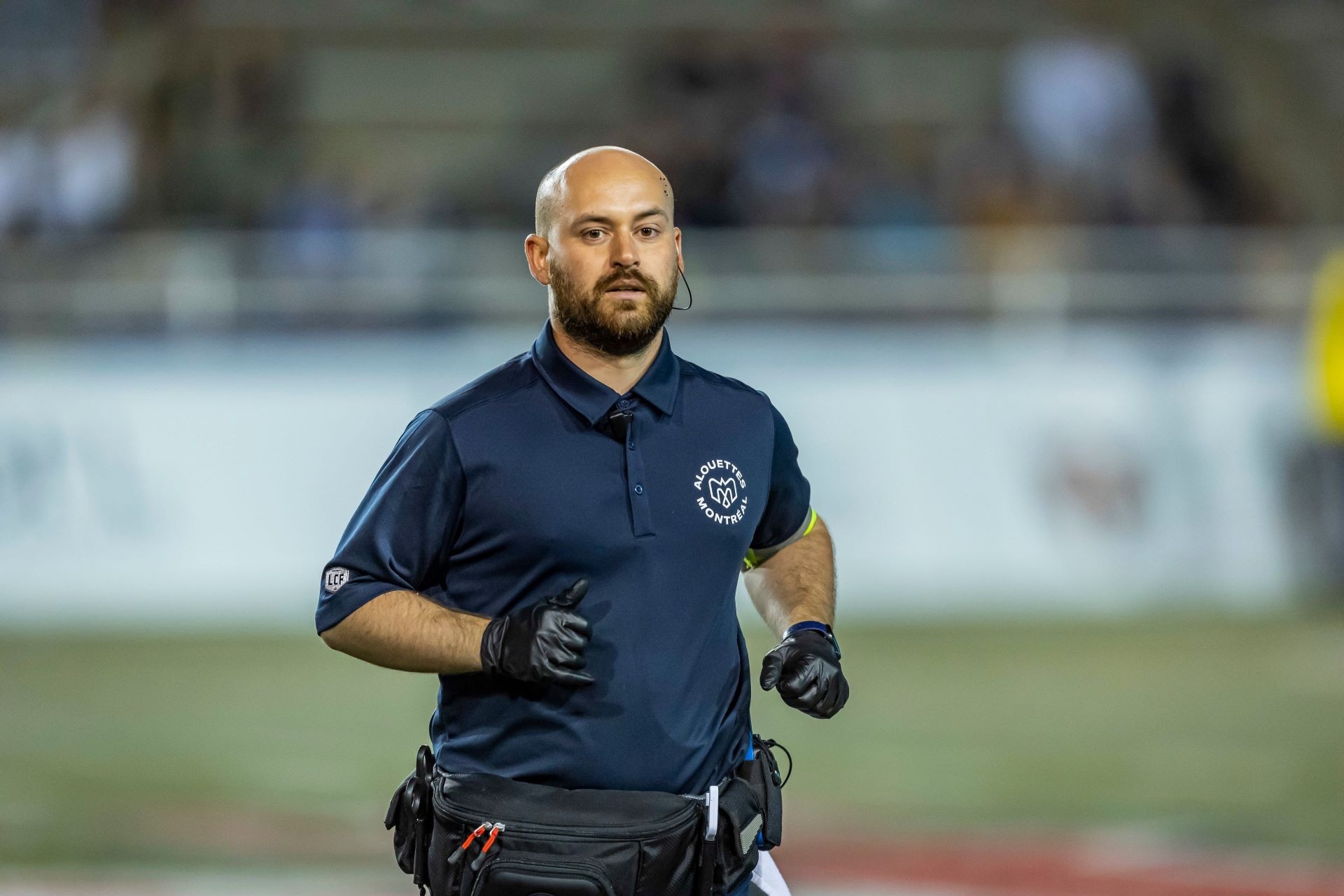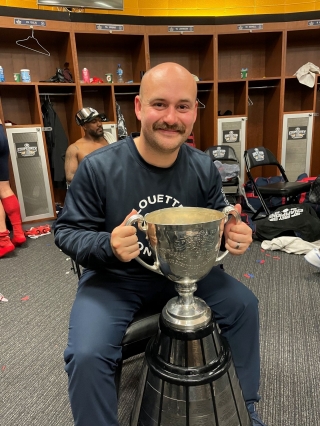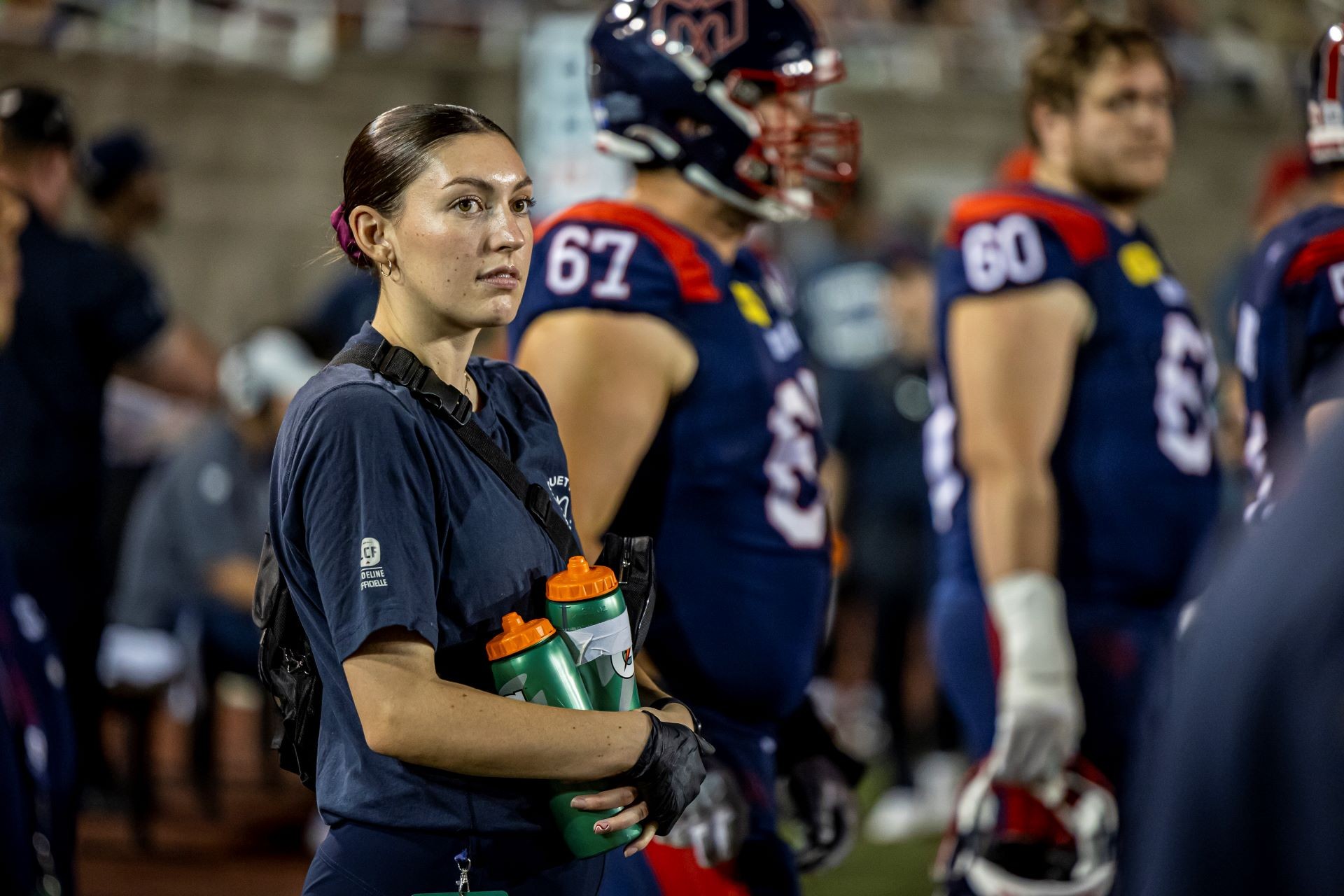Which classes left a lasting impression on you during your academic journey?
TC: The course that stands out the most is the one where we learned about taping techniques and evaluations. It’s a class that sparks enthusiasm in everyone. Now I can teach it myself, covering the theoretical aspects and showcasing injury demonstrations.
Can you share a pivotal learning experience from your studies in athletic therapy?
TC: The most challenging experience was the first-year anatomy course. It was dense, covering numerous muscles and nerves. We used various resources, like models, cadavers and flagged posters.
We had to do a test that was divided into different stations. Each station demanded instant identification of specific anatomical parts, pushing students to excel in anatomy. It’s a skill that sure stays with you throughout your academic career. I still hear the beeping sound in my head sometimes when I practice!
Any favourite spots or facilities that stand out from your time at Concordia?
TC: The learning lab in the athletic therapy program! It’s a gathering place equipped with anatomical models and study materials. It’s a valuable space for collaborative learning and hands-on practice.
Who’s your favourite professor and why?
TC: Geoff Dover (associate professor of health, kinesiology and applied physiology) introduced me to research. He supervised my master’s and is now supervising my doctoral work.
Professor Dover provides the motivation I need while giving me just the right amount of freedom in my academic pursuits.
What do you think makes life in Montreal unique?
TC: The mix of cultures is distinctive. I was born in Montreal to francophone parents. The language I speak at home is French. I often tell our players that, when in Montreal, learning French to be able to appreciate Quebec culture is key.
The Alouettes are Montreal’s team. Coaching staff and players know that learning French is part of the equation when playing in this great city. For example, when practicing, the players are often asked to switch between English and French or to practice their French together. Coaches and players of equal talent are selected based on their ability to communicate in French. The head coach also arranged French tutoring for himself during the off-season.
Everyone can see that there is something special happening in Montreal, and everyone wants to be a part of it.
Read more about Tristan Castonguay’s journey and research.
Discover Concordia’s Department of Health, Kinesiology and Applied Physiology.


 “Collective spirit, motivation, and hard work propelled us to an exceptionally strong finish in the season, overcoming early-season perceptions”: Tristan Castonguay, Concordia athletic therapy PhD student and head athletic therapist for the Montreal Alouettes
“Collective spirit, motivation, and hard work propelled us to an exceptionally strong finish in the season, overcoming early-season perceptions”: Tristan Castonguay, Concordia athletic therapy PhD student and head athletic therapist for the Montreal Alouettes
 Tristan Castonguay holding the Grey Cup
Tristan Castonguay holding the Grey Cup
 “Julie Lamoureux won a Grey Cup within her first six months, can you imagine?” Castonguay says.
“Julie Lamoureux won a Grey Cup within her first six months, can you imagine?” Castonguay says.